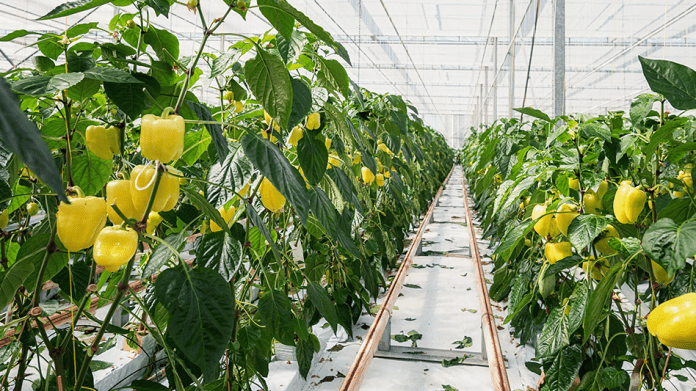Organic farming is gaining popularity in Kenya as consumers shift to healthy and sustainably produced food, a trend that has seen expenditures on organic food rise faster.
Farmers are also shifting to organic farming due to its unique combination of low inputs, environmental conservation, and access to premium price markets.
Brian Okeyo is among the farmers who have adopted organic farming, ensuring the production of chemical-free food while conserving the environment.
On his quarter-acre farm in Sinoko village, in the outskirts of Bungoma town, Okeyo grows Bell peppers, a crop he says has multiple advantages compared to other horticultural crops.
“I settled on planting bell peppers commercially since they require little attention, unlike other horticulture crops like Tomatoes. Pepper has minimum pest attacks and can survive under harsh conditions,” Okeyo told The Standard.
According to him, harvesting begins three months after planting, and harvesting can be done weekly for up to the eighth month.
“Harvesting starts three months after planting, and henceforth I harvest weekly with a consistent bumper return until they hit eight months is when their production reduces,” he adds.
Temperate fruits secretly earning farmers millions of shillings
The farmer notes that his produce is purely organic. He uses leftover vegetables, eggshells, banana leaves, fish waste, and earthworm waste to make organic fertilizer.
“The worms eat through organic waste and produce vermicompost that is rich in nutrients. I blend it with other household and farm leftovers to make a fertiliser, which revives the soil and helps crops grow faster and healthier,” he explains.
“We also do anaerobic composting of fish waste and seaweed. This ensures that our organic fertiliser has all the required five micro elements and eight macro elements, and growth hormones for plant development,” Okeyo adds.
Okeyo notes that one advantage of growing crops organically is that the produce is completely natural and safe, and can be harvested and consumed on the same day with no risk of chemical contamination.
“By use of organic fertiliser, farmers control the amount of nitrogen that goes into the soil and, therefore, ultimately the acidity of the soil as concentrated nitrogen releases ammonia which sublimes into the atmosphere in the form of ammonia gas that is one of the harmful gases causing global warming,’ says Okeyo.
Besides enriching the soil, Okeyo also practices integrated pest management using Coriander and spring onions.
He explains that Coriander attracts ladybugs that feed on harmful pests, while spring onions repel insects like caterpillars.
From his farm, Okeyo makes a monthly earning of over Sh80,000.
“We only sell grade one and two, the best of our produce, and for grade three and four, we do value addition where we make spices from the coriander and the different peppers into paprika. We also make ground tomatoes, which are dried them ground into a fine powder, and also our leafy vegetables are dried and preserved.”
According to sources, pepper farming is profitable and can potentially give up to Sh1.2 million per acre in sales and almost 1 million in profit.
An acre yields between 25 and 30 tons of fruit and a kilo sells for between Sh40 and Sh60 at the farm gate.









